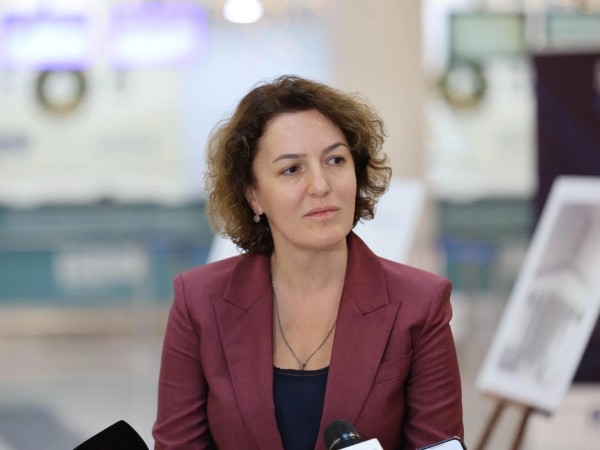Tbilisi (GBC) - IT companies with the status of Virtual Zone Persons (VZP), united in the Association of Georgian Virtual Zone Persons, are actively working with government officials to solve legislative challenges faced by international companies attracted by tax incentives.
As a result, more than 1,000 IT companies attracted by Georgia's tax incentives established in 2011 will not hesitate to seek better markets for operations. In this case, the Georgian government will need to make more efforts to retain the companies and benefits attracted by these tax incentives over time.
Companies with the status of Virtual Zone Person (VZP) and the Association of Georgian Virtual Zone Persons organization they founded continue to collaborate closely with the authorities in an effort to swiftly remove any inaccuracies in the law that give tax service representatives the chance to interpret it incorrectly and penalize the businesses accordingly. These are the fines with which the taxpayers and the Association disagree. We are talking about millions of GEL, which means that the advantages that the country drew from its own market have been lost for the companies.
GBC spoke with L.A., the managing director of the company "EI," which entered the Georgian market in 2021, under the condition of confidentiality in order to better present the problems created in this sector:
Why did you decide to operate in this country's market?
Tax benefits Vs cost of living. I moved the company from Dubai to Georgia. Even though in Dubai there were no taxes (corporate not otherwise), the operational costs for licenses, banks etc made it expensive to run s business there. I started looking into similar models like Dubai free zones in other countries and found the virtual company offering in Georgia.
Please explain the structure of tax benefits. Which advantages are of particular interest to your business?
Corporate tax, revenue tax, dividends tax. Many countries are offering even zero tax for all foreign revenue (Croatia, Portugal). Even though Georgia there is still 5% on dividends, The low cost of operations and cost of living in the country, made it an attractive option.
Nothing in the world is perfect. What gaps have you noticed in the Georgian legislative acts that regulate the operation of your company in this market?
More than gaps, legal stability is the key. The main concern is there is no guarantee of rules not changing. There are signals of certain policies willing to be reversed, that is enough for companies for considering alternatives.
Has your company faced any problems with the revenue service of the Ministry of Finance? If so, what exactly is the issue?
The dependency on Georgian language makes it a difficult entry barrier. Also, I wanted to apply for residency through my company and I couldn't since a requirement is vat proof. There is no vat in virtual companies so the result is if I want to be formally a Georgian resident, I cannot do it through my company despite it making a lot more revenue than the required 50.000 gel. Only sections of the website are in English. You must be a finance consultant as part of the running cost to ensure accurate and timely reporting.
Information technology is a much younger industry than the rest of the economy. This is new for the governments as well, including in Georgia. What legislation is needed to regulate the relationship with the government, and what is your company doing about it?
New or not new is not relevant. IT is the sector with the greatest potential. Legislation is always slow as there is often no understanding of technology, and that is a prerequisite for regulating it. Software is a very fast paced environment, regulations the complete opposite.
Tax oases for companies in your industry are likely to be found in other parts of the world. What should the government of the country do to maintain and increase the benefits received from tax incentives in the future?
There are even more "tax havens" now after the COVID pandemic. Digital nomads have plenty of alternatives to run a business efficiently from many parts of the world. Georgia needs to remain relevant by making sure there is stability and remain as an attractive option for entrepreneurs. That goes beyond being a cheap country and cheap electricity. It needs to do a lot more to attract talent and business. Qualified resources are scarce, even non existent. There had to be less barriers of entry, more clear regulations and legal stability
How many employees does your company have, and how many of them are Georgian citizens who are specialists?
- 2 employees currently but looking to grow to about 10 this year. One of them is Georgian.
How much GEL have you paid in preferential tax to the Georgian budget since obtaining the aforementioned status until today?
Around 32,000 GEL.
Do you intend to expand your business in Georgia?
- Yes, the Association of Georgian Virtual Zone Persons is actively working with government representatives at both the governmental and parliamentary levels to achieve transparency and accuracy in tax legislation.
What role, specifically, does the Association of Georgian Virtual Zone Persons play in this process, and how important is its existence to your company?
Clarifying what's possible and not possible in the scheme. Helping understand the regulator's and government the importance of attracting and maintaining entrepreneur's in the country. Communicating also the challenges we face in the country due to lack of clarity and scarcity of qualified resources.
As a result of the activity of the Association, significant changes were made both in methodological documents and in terms of attracting the attention of the media, business ombudsman, and government bodies. How has this affected your business personally?
Yes. Now it is clearer what's meant by software built in the territory of Georgia. And given the lack of qualified personal, what's the framework to work with people outside Georgia.
What advice would you give to companies that have recently received or plan to receive the Virtual Zone Person status?
To have local finance and legal support. There is so much ambiguity that is not clear to me entrepreneurs What's possible and not possible. Examples of things not clear are business expenses such as travels to conferences, financial assets such as transport, if there is need to engage with a software vendor abroad, the implications of reverse VAT, etc.





















